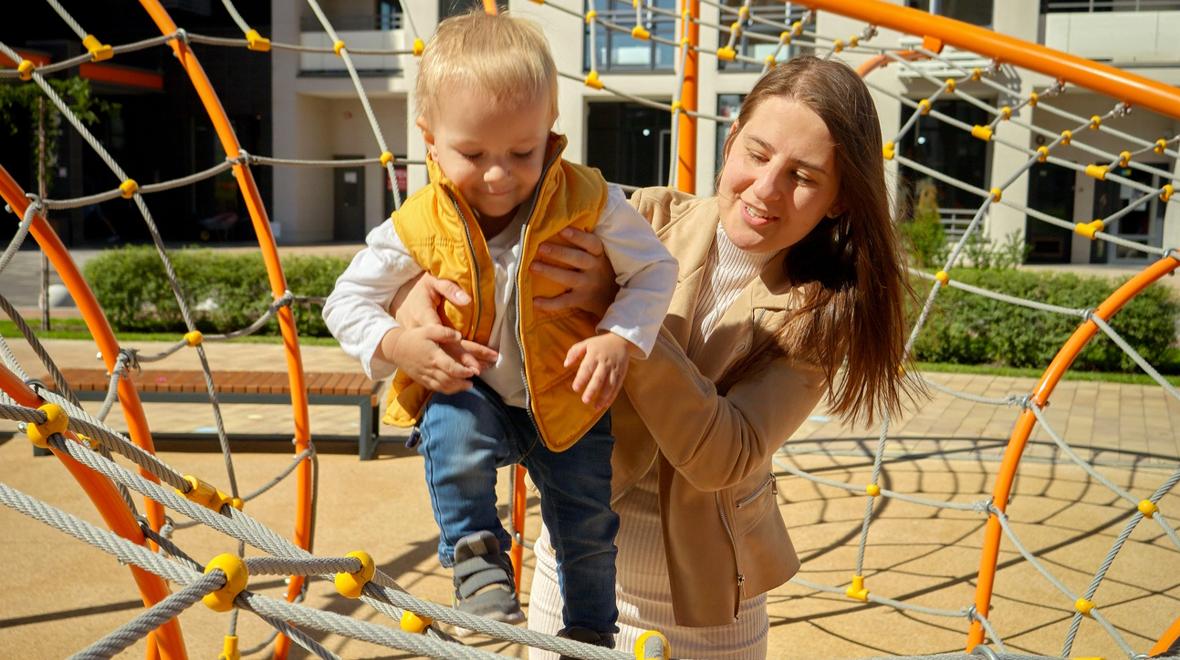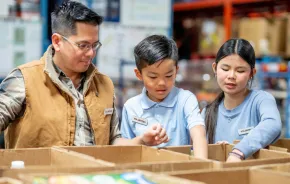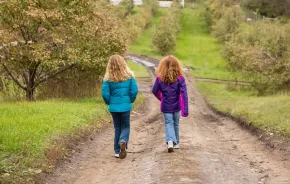
Helicopter parenting all around
If you visit any playground today, you might notice an interesting phenomenon: There aren’t many parents sitting on benches, milling about on the sidelines, leaning up against fences or watching from afar.
Instead, they’re following their kids around as if connected with an invisible leash.
Parents are seemingly required to not only supervise play but actively participate in an odd sort of “shadow play.” At playdates, they constantly engage kids and teach them how to play with toys the “right” way. At indoor play spaces or children’s museums, they’re on their hands and knees crawling around in tunnels. And at playgrounds, they’re always one step behind, holding out their arms in case of a 10-inch fall onto some woodchips.
It’s hard to judge these parents. They simply want to keep their kids safe and engage with them while learning about the world. But all of this child-following at places that are designed for children to play is not only exhausting — it could be negatively impacting children.
|
For more support and resources surrounding the youth mental health crisis, screen time and social media, and the importance of play, visit ParentMap’s Antidote for the Anxious Generation page. |
Perks of independent play
Kathy Hirsh-Pasek, Ph.D., is an expert in the field of child psychology. Her research has resulted in 14 books, including “Einstein Never Used Flashcards.”
She explains that frequent solo play — letting children play on their own with no guidance, encouragement or interaction from adults — helps kids become creative problem-solvers and more effective members of society.
We want to build creators in the world today, and yet we don’t spend a lot of time giving our kids unstructured opportunities to create and discover.
“We hear a lot that we want to build creators in the world today, and yet we don’t spend a lot of time giving our kids unstructured opportunities to create and discover,” says Hirsh-Pasek.
Encouraging your child's voice
Small children rarely get much say in how their day goes. As parents, we tell them when to sleep, what to eat and what to wear. We push them around in shopping carts and buckle them into car seats. These things are to keep them safe and help them grow, but Hirsch-Pasek emphasizes the importance of giving a child free agency when the moment allows, like in a supervised play environment.

For instance, when a child picks up a toy mixing bowl and wears it as a hat, it’s tempting to encourage them by pointing out that it’s a bowl or suggesting that they pretend to stir instead. But allowing kids to play with things in the way they choose to gives them an important slice of power they rarely receive.
“Little people are little. They’re always seeing from the knee down. And sometimes giving them a little bit of power to control the environment they’re in is a pretty big deal,” says Hirsh-Pasek.
Similarly, if a toddler whose fine motor skills aren’t quite developed knocks down a block tower, it can be tempting to rush in and help them rebuild it. But allowing them to fail, according to Hirsh-Pasek, is an essential part of allowing the “creator” within them to blossom.
Boredom isn’t bad
Furthermore, it’s no surprise that in today’s world, we all struggle with boredom. As busy parents, we often don’t experience boredom very often; when we're waiting in line at the grocery store, we can whip out our cell phone and distract ourselves.
Another benefit of solo play is that it teaches children to be comfortable with a bit of boredom and to entertain themselves. It gives them an opportunity to just “be” instead of feeling the need for their parents to fill every moment.

Some parents fear that they aren’t playing with their children enough and that it may affect their development. Engagement is obviously still very important, says Hirsh-Pasek, but solo play is just as important for development and problem-solving skills. She suggested opportunities for solo play should be balanced with opportunities for engaged play.
“Interaction is important, but so too is letting your kid have agency,” she says. “With the very best of intent, we often steal agency from our children and determine what they’re going to do.”
Hirsh-Pasek describes a past experiment of handing children an Etch A Sketch toy alongside their parents and seeing the difference between parents who would say “What do you want to draw? What are you drawing?” instead of saying, “Oh, look! You drew a bird!” One approach, she describes, gives the child a sense of control. The other unintentionally takes it away.
Obviously, solo play for small children should always be supervised to prevent harm. But next time you’re at the playground with your kids, consider backing off a bit instead of suggesting activities or hovering. Solo play is healthy, entertaining and essential to their development.
You might also like: |
Editor’s note: This article was originally published in March 2018, and updated most recently on May 22, 2024 by associate editor, Kari Hanson.











